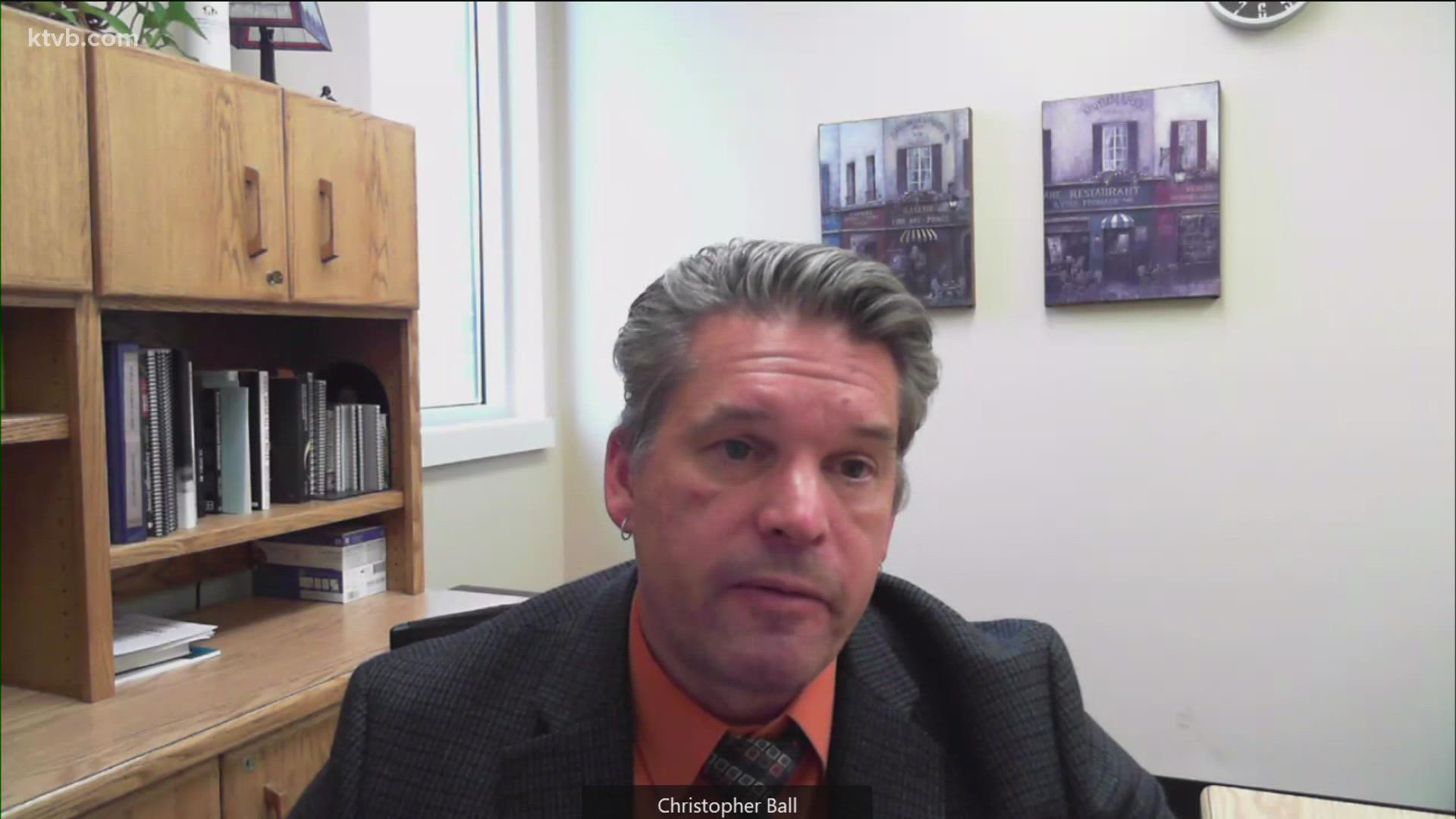BOISE, Idaho — The Idaho Department of Health and Welfare (IDHW) held its weekly COVID-19 media briefing at 2:30 p.m. on Tuesday.
IDHW Director Dave Jeppesen, State Epidemiologist Dr. Christine Hahn, Idaho Bureau of Laboratories Chief Dr. Christopher Ball and Idaho Immunization Program Manager Sarah Leeds attended the briefing.
The meeting comes as national health officials warn people of the new Omicron COVID-19 variant, which President Joe Biden referred to as a cause for concern but “not a cause for panic".
"We are concerned about any new variant that emerges," Jeppesen said during Tuesday's meeting. "We know less about this than we know about this variant, so really the next couple weeks will tell us if this variant is a threat and how much of a threat it may be."
Omicron was detected earlier this month in South Africa, while Pate said researchers don't believe it originated in the country. He added it was only identified there first because of their testing capabilities. Researchers believe it started in a country where vaccination rates are low but don't know exactly where.
Biden added it was inevitable that the new variant would reach the U.S., but said the country has the tools necessary to protect Americans, including COVID-19 vaccines and booster shots.
Idaho health officials echoed this sentiment, adding very little is currently known about the new variant.
"We are concerned," Hahn said. "We have been watching each new variant and don't know in the beginning how serious it could be. We know our vaccination rate is not where we'd like to see it."
Despite previous claims, Idaho medical experts said there is no conclusive evidence the suggests the Omicron variant is more contagious than the Delta variant, which is currently the dominant mutation strain in Idaho.
However, medical personnel does have a way to tell when the Omicron variant has officially reached Idaho thanks to the strain's unique sequence.
"One of the things that's peculiar about the Omicron variant is that it's much like the Alpha variant we saw last spring, in that there is a unique PCR profile for certain tests that may give us a sneak peek that it's here," Ball said. "So there's a particular gene target that doesn't amplify, and when we see that particular profile, it's an indication that we may have the Omicron variant present."
Hahn added the time for Idahoans who have not received their initial COVID-19 vaccine or their booster to get it is now, before the variant reaches Idaho.
During Tuesday's meeting, a Food and Drug Administration (FDA) panel voted 13-10 to endorse the benefits of a closely watched COVID-19 pill from Merck, setting the stage for a likely authorization of the first drug that Americans could take at home to treat the virus.
Hahn said before the pills can be prescribed to Idahoans, the full FDA will need to issue a full authorization, but the Centers for Disease Control and Prevention (CDC) will not need to give authorization as they did for the COVID-19 vaccines.
Once the pill has been approved, the federal government will determine how many doses will be allocated to Idaho.
"We've been told it might not be a lot right away," Hahn added. "We've worked hard with partners, including pharmacy chains around the state to try to get them."
The CDC broadened its recommendation for COVID-19 booster shots to include all adults because of the new variant. The agency had previously approved boosters for all adults, but only recommended them for those 50 years and older or living in long-term care settings.
Dr. David Pate, the former CEO of St. Luke's Health System and Idaho medical expert, said there is not a lot known about the Omicron variant by the World Health Organization (WHO), but what researchers have seen has them worried.
To watch the briefing, use the player below:

